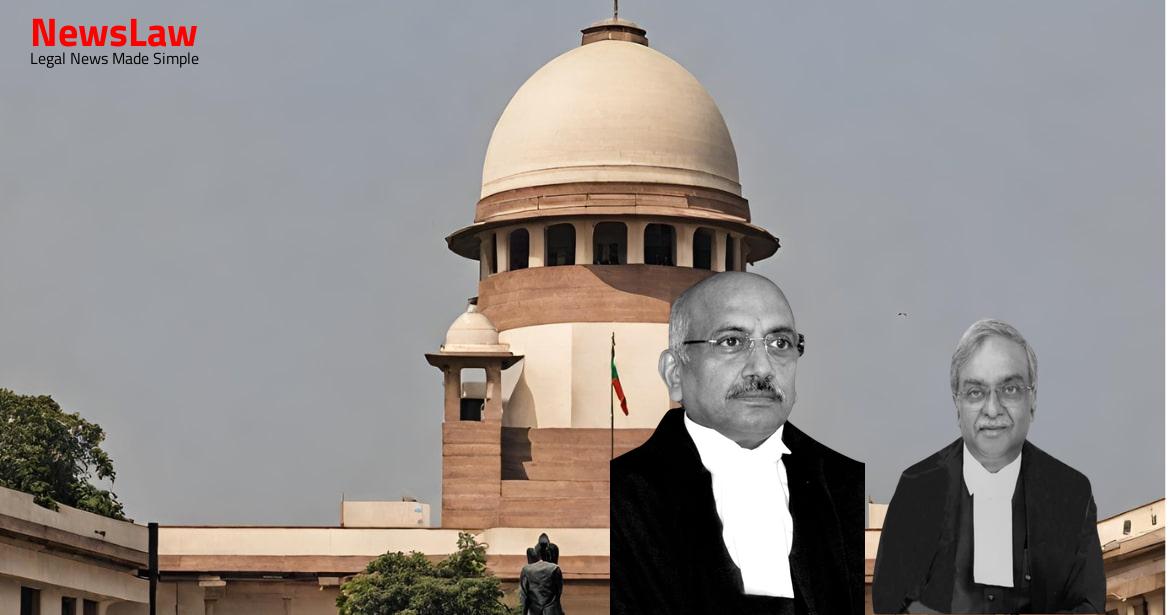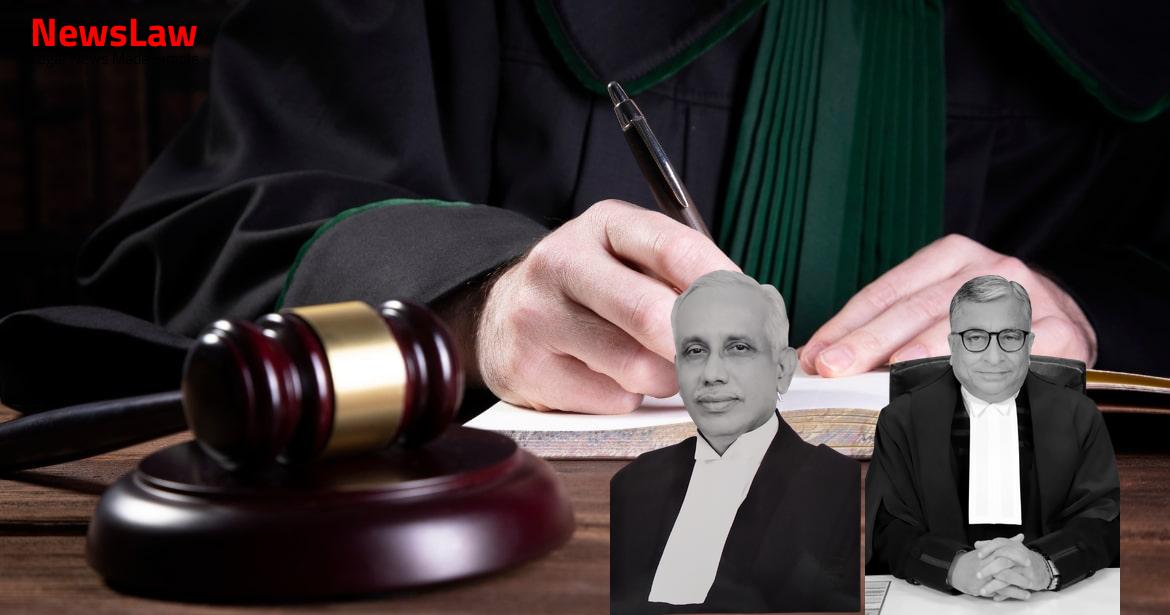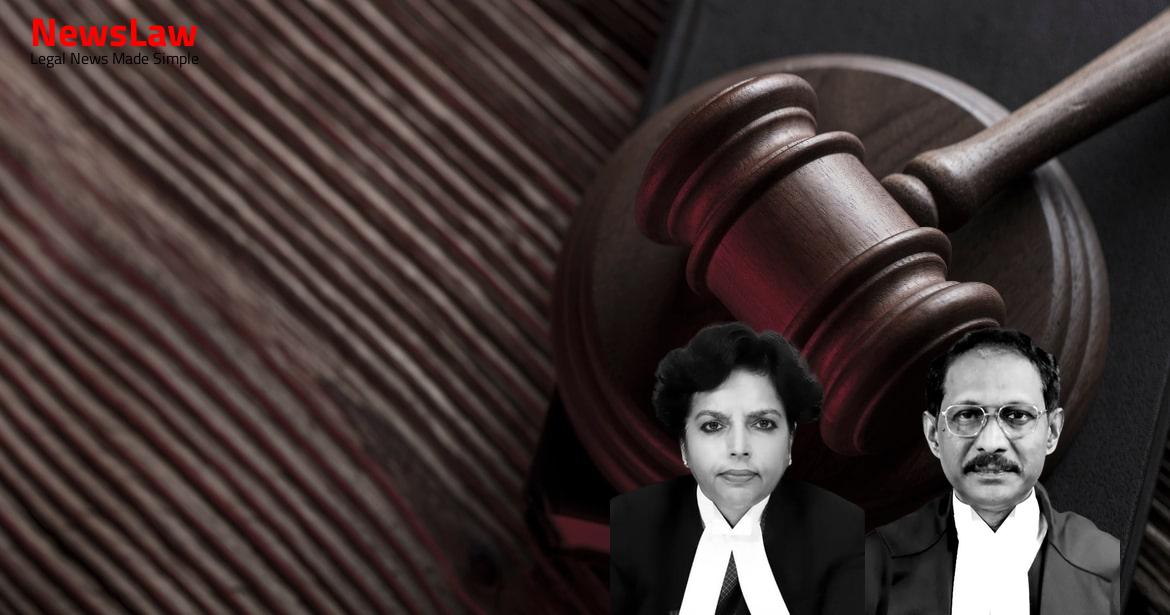Delve into the nuanced legal analysis of a recent court decision concerning the interpretation of reservation policies in recruitment. With a focus on the implications of the G.O. dated 7.5.1999 and its relevance to appointments based on disability categories, this case sheds light on the intricate workings of reservation policies within the legal framework.
Facts
- An advertisement was published on 16.6.2008 for 1651 posts of safai-karmis in District Mau.
- Out of the total posts, 346 were reserved for Scheduled Caste, 34 for Scheduled Tribe, and 445 for Other Backward Class.
- The Government Order dated 7.5.1999 was struck down in the High Court’s order on 15.2.2019.
- Despite the invalidation of the 1999 Government Order, the selection to the post of Safai-Karmis made in response to the 2008 advertisement was not disturbed or nullified.
- All categories of disabled persons entitled to avail reservation up to 3 percent
- One percent each available for disabled candidates suffering from blindness or low vision, hearing impairment, and loco-motor disability or cerebral palsy
- Reservation also applicable to advertised posts for women, disabled candidates, freedom fighters, and ex-servicemen as per government decisions
- Number of reserved posts not specified
Also Read: Landmark Judgment on Compensation for Fatal Accident
Arguments
- Reservation provided to deaf and partially deaf candidates for Sweeper positions, and for persons with locomotor disability in Daftry, Attendant, Peon, Office Boy positions.
- Applicant relies on Order XLI Rule 33 of the Code of Civil Procedure to argue that the High Court’s decision can be upheld on other grounds.
- G.O. dated 8.12.2010 states that future Class-IV recruitment (except lowest cadre of technical post) would be through outsourcing.
- High Court’s decision not to disturb the selection process was justified as no appointments to Class- IV posts were possible at the time of the order.
- Sections 32 and 33 of the Act were misinterpreted by the High Court.
- The G.O. dated 7.5.1999 needs to be analyzed in light of Sections 32 and 33 of the Act.
- Arguments presented in Government of India v. Ravi Prakash Gupta regarding Sections 32 and 33 were referenced in the case.
- G.O. dated 7.5.1999 is contested by the State’s counsel who claims it was wrongfully struck down.
- Misreading of the G.O. dated 7.5.1999 highlighted by the appellants, arguing for appointments based on disability categories.
Also Read: Land Acquisition Compensation Legal Analysis
Analysis
- Appellants submitted applications with locomotor disability certificates mentioning Mr. Ajay Kumar Pandey with 50% Loco Motor Disability.
- 50 posts were reserved for disabled candidates, but not as per the reservation policy of appointment of disabled candidates in the State.
- The State Government identified posts suitable for disabled candidates under the Persons with Disabilities Act, reserving 1% each for visual disability, hearing impairment, and locomotor disability.
- The G.O. dated 07.05.1999 could not be set aside in judicial review without proper grounds.
- The High Court’s order striking the G.O. was based on surmises and conjectures and cannot be sustained.
- The State Government reserved posts for hearing-impaired but not for candidates with locomotor disabilities.
- The G.O. identified Group D posts like Daftry, Attendant, Peon, Office Boy, etc., to be filled by candidates with locomotor disabilities.
- 3% reservation for disabled candidates should be in an establishment and not in all cadres of an establishment regardless of the job nature.
- The judgment was considered by the Court in a specific case involving Union of India & Anr. v. National Federation of the Blind & Ors.
- The Court held specific points related to this case, outlining its implications and decisions.
- These points are crucial for understanding the context and reasoning behind the Court’s decision.
- The case serves as a reference point for further legal arguments and interpretations.
- Safai-Karmis posts were not identified to be filled up by candidates with locomotor disability.
- Appellant could not be appointed against posts not reserved for Safai-Karmis.
- G.O. dated 07.05.1999, being part of the advertisement, prohibited appointment of appellants to reserved disabled posts.
- Appellants’ ineligibility for appointment against posts reserved for disabled candidates clarified.
Also Read: Legal Analysis in Land Allotment Case
Decision
- The order of the High Court striking aside the G.O. dated 7.5.1999 is set aside.
- The appeal is disposed of accordingly.
- No merit found in the present appeal.
Case Title: AJAY KUMAR PANDEY Vs. STATE OF U.P. (2022 INSC 776)
Case Number: C.A. No.-004811-004811 / 2022



